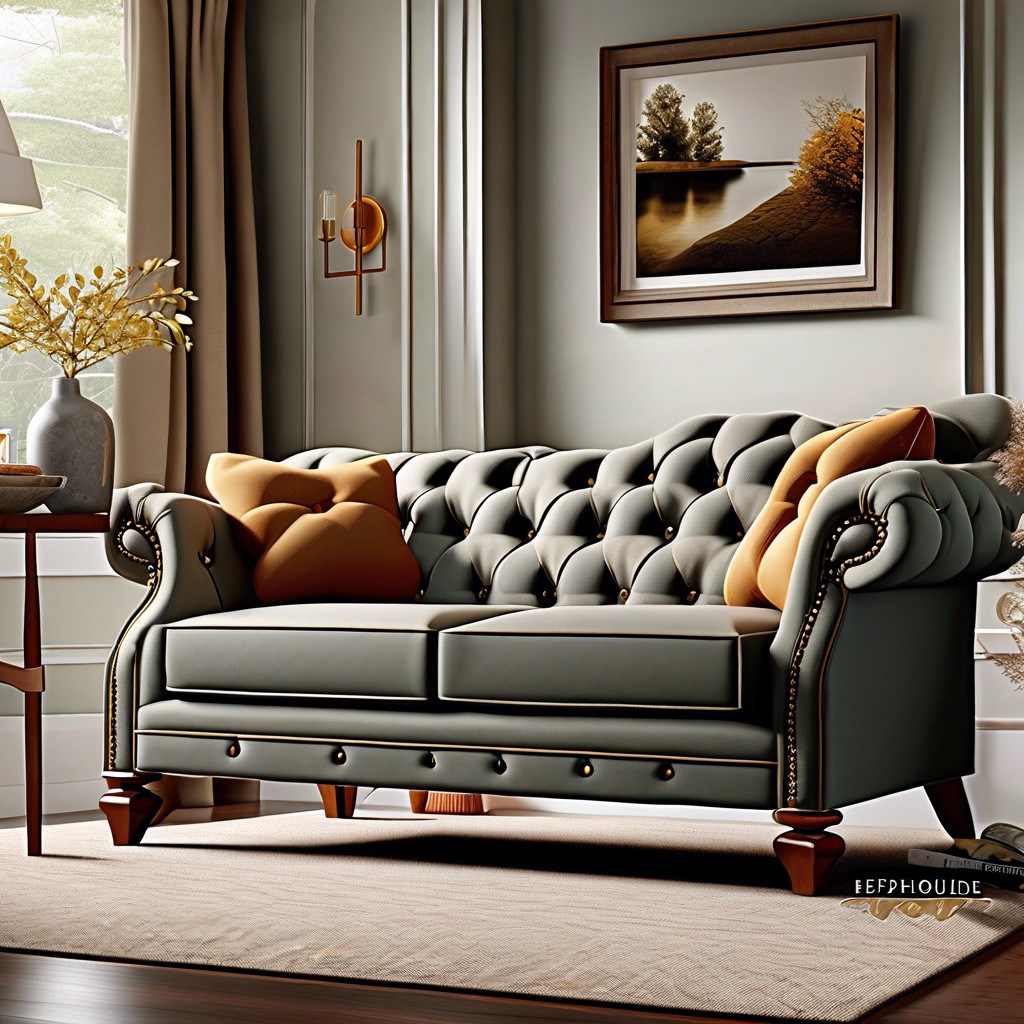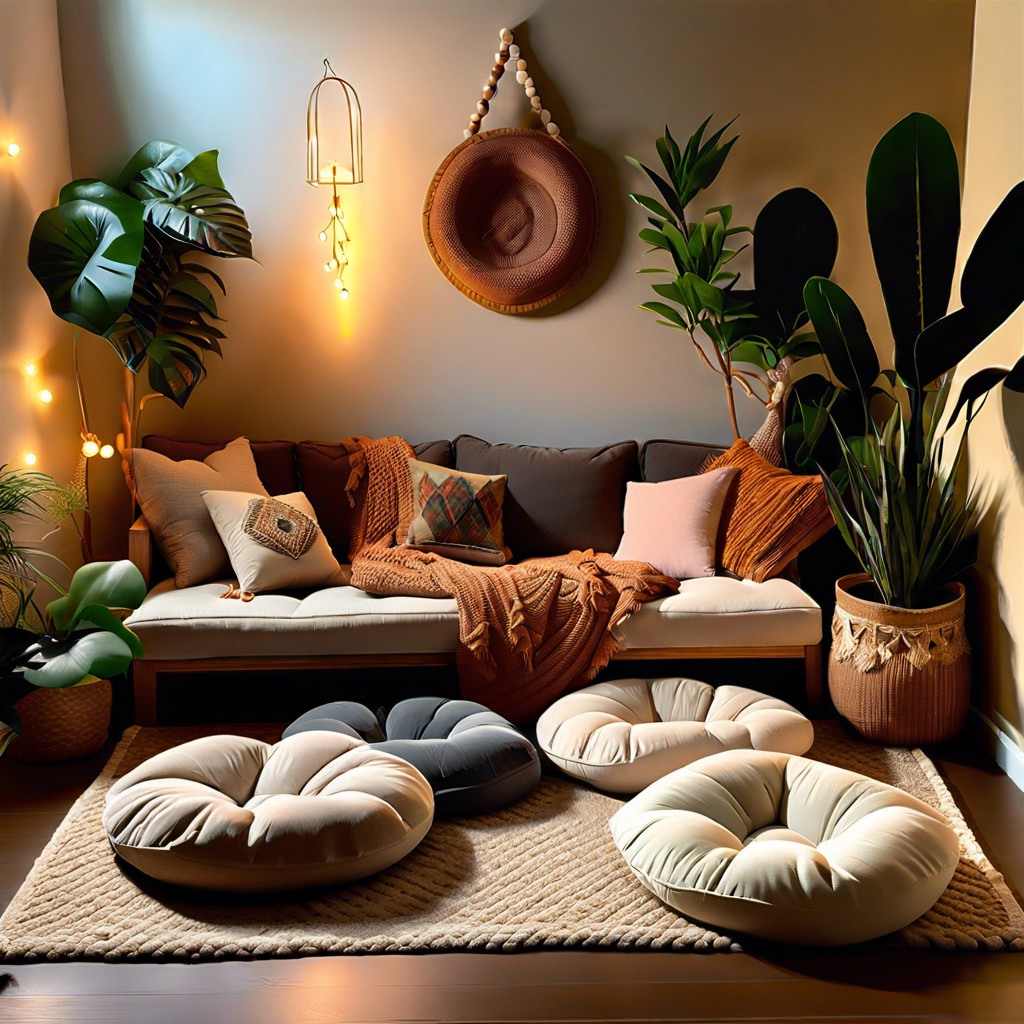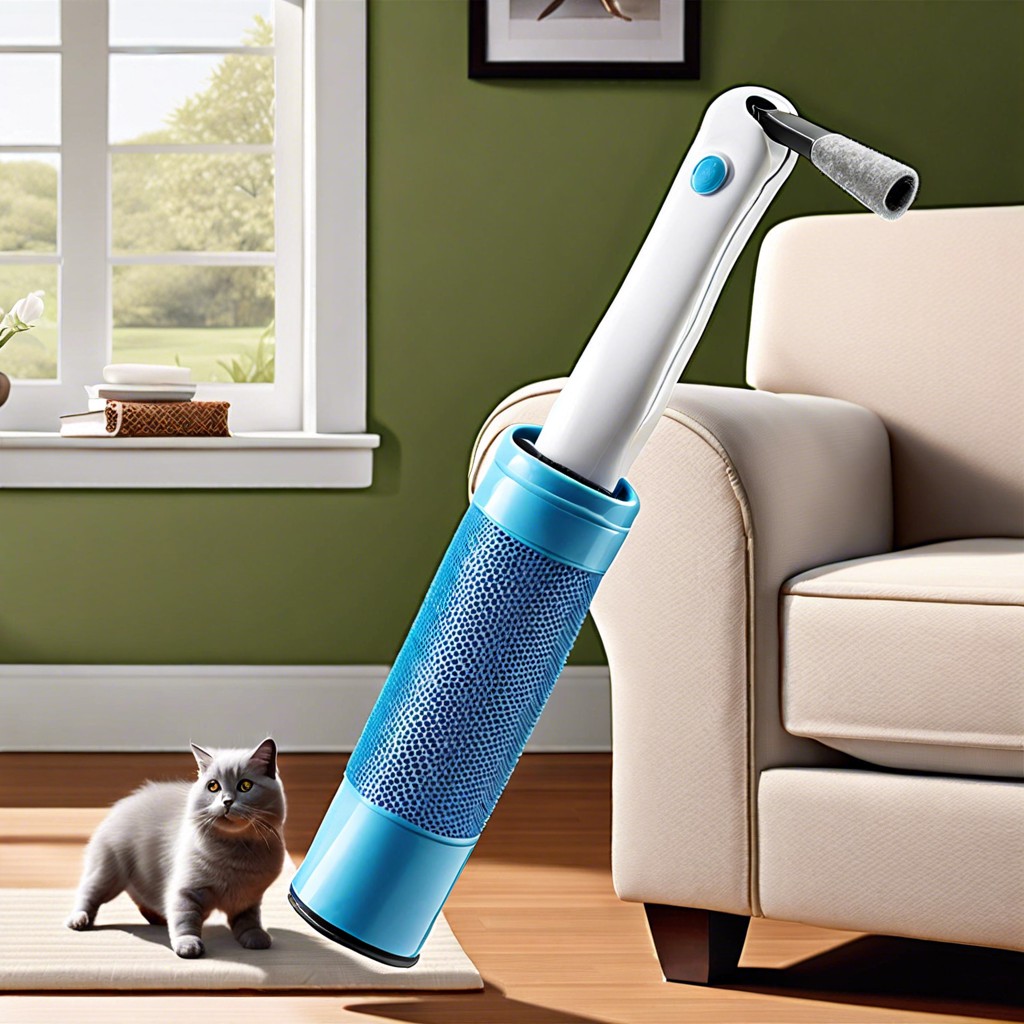Last updated on
In this article, you will acquire practical steps to prevent your dog from jumping on your couch, thus preserving its aesthetic appeal and durability.
Key takeaways:
- Dogs are drawn to couches for comfort and elevated spots.
- Establish and communicate consistent rules for all household members.
- Use positive reinforcement to reward desired behavior.
- Deter your dog from the couch with deterrent sprays, covers, obstacles, and alternatives.
- Consider seeking professional help if training challenges persist.
Table of Contents
Understanding the Behavior: Why Dogs Choose Couches
Dogs are drawn to couches for the comfort they provide, similar to their human counterparts.
The softness of the cushions offers a cozy spot for rest and relaxation.
Additionally, elevated spots like couches allow dogs to survey their environment, satisfying a natural instinct to watch over their territory.
Furthermore, your scent lingers on the couch, which can be comforting to your pet and make the area particularly attractive to them.
Understanding these motivations is crucial in addressing the behavior effectively.
Consistency Is Key: Uniform Rules for All Household Members
Establish and communicate clear guidelines about the couch to everyone in the home. If one person allows the dog on the furniture while another scolds them for it, this mixed messaging will only confuse the dog and undermine the training process.
Consistency also extends to the dog’s environment. For instance, if the dog is not allowed on the couch, ensure that this rule is followed in every room with a couch. Consistent physical and verbal cues are crucial; choose specific commands like “off” and use them exclusively to instruct the dog to get down.
By having all household members utilize the same cues and rules, the dog will learn what is expected and adhere to the boundaries set for them. Remember, patience and perseverance are essential. Dogs may test limits, but consistency will reinforce training over time.
Positive Reinforcement: Rewarding Desired Behavior
When your dog opts for their bed instead of the couch, lavish them with praise and treats. This reinforcement tells your furry friend that choosing their own space brings good things. Consistency is crucial here; always reward the behavior you want to encourage.
Toys or playtime can also serve as incentives, reinforcing your pet’s positive choice. Remember, the goal is to make the alternative to the couch more attractive. This way, your dog begins to associate their bed with relaxation and rewards, leading to a natural preference.
Timely rewards are essential, as dogs live in the moment. Reward your pet immediately when they make the right choice, to ensure they make the connection between their action and the positive consequence.
Discourage Couch Access: Making the Couch Unappealing
To deter your dog from the couch, consider these practical steps:
1. Use deterrent sprays: These safe but unpleasant-smelling sprays can discourage your pet from approaching the furniture.
2. Cover furniture: A plastic couch protector or a slipcover can make the surface less comfortable and less appealing to your dog.
3. Block access: Place obstacles in front of the couch when you’re not using it. Items like storage boxes or an upside-down chair can be effective.
4. Provide alternatives: Ensure your dog has a comfortable bed of their own. If it’s more appealing than the couch, they’re more likely to use it.
5. Maintain a clear space: Keep the couch free of toys and treats that might attract your dog.
Implementing these steps will help keep your couch dog-free without any need for negative reinforcement.
Professional Help: When to Consult a Dog Trainer or Behaviorist
If your efforts to keep your dog off the couch have hit a wall, it might be time to seek professional assistance. Dog trainers and animal behaviorists bring a depth of knowledge about canine psychology that can prove invaluable.
Here are a few situations where turning to a professional could be especially beneficial:
- Persistent Behavior: If your dog consistently ignores your commands and deterrents, a pro can identify underlying issues and suggest targeted strategies.
- Stress & Anxiety: Sometimes, seeking the couch may be a sign of stress or anxiety. Behaviorists can develop a plan to address the emotional needs of your dog.
- Aggression: If your dog growls or snaps when you try to move them off, it’s crucial to address this aggression safely with the help of an expert.
- Training Challenges: Dogs with a history of reinforcement for couch access may require a specialized retraining program that professionals can provide.
- Time and Expertise: Professionals can save you time and frustration with their expertise, providing efficient methods that lead to quicker results.
Remember, investing in professional help isn’t just about keeping your couch free of fur; it’s about fostering a healthy, respectful relationship between you and your dog.
FAQ
How do I stop my dog from jumping on the couch when I’m not home?
To prevent your dog from jumping on the couch when you’re not home, consider strategies like laying a baby gate flat on the furniture, positioning cushions vertically, placing empty laundry baskets on the cushions, or stacking books near the couch’s edge.
What can I use to keep dog off couch?
To deter your dog from getting on the couch, you can use physical deterrents like empty laundry baskets, books or commercially available products such as a couch defender or a pet training mat (also known as a scat mat).
Why does my dog keep trying to get on the couch?
Your dog is likely getting on the couch for a combination of reasons including seeking comfort from your scent, enjoying a higher vantage point, and potentially having a view of the outside if the couch is near a window.
What are some effective training methods to discourage dogs from couch hopping?
Effective training methods to discourage dogs from couch hopping include positive reinforcement, setting boundaries with specialized tools like pet gates, teaching ‘off’ command, and providing attractive alternative resting spaces.
Which furniture protectors can aid in preventing dogs from accessing the couch?
Furniture protectors such as couch covers, pet gates, and anti-scratch tape can prevent dogs from accessing the couch.
How does creating a designated comfortable space for my dog deter them from jumping on the couch?
Creating a designated comfortable space for your dog gives them their own area to relax and can reduce their attraction to other furniture like your couch, as it satisfies their need for a comfortable, secure, and familiar environment.




